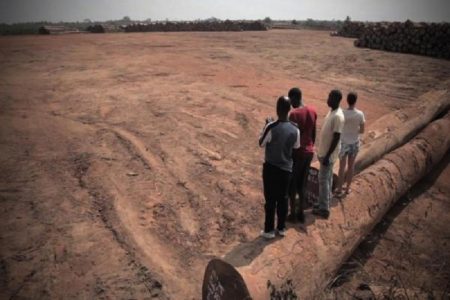After many months of debate and with a strong support from the public opinion, the Liberian government passed the Land Rights Act in September, 2018, which officially recognizes the rights of local communities over their productive lands, without the need of long entitlement proceedings.
With this huge step, Liberia could promote deep land and forest reforms in Central and Western Africa and revert the land grabbing processes featured by timber and palm oil transnational corporations.
“It is one of the most profound pieces of legislation that we´ve had since we got our independence in 1847”, said Ali Kaba of the Sustainable Development Institute [1] / Friends of the Earth Liberia. Together with his colleague Nora Bowier, they shared with Real World Radio their thoughts about the relevance of this act and the challenges ahead.
Throughout the years, the government signed different contracts with foreign investors, to the extent that “a couple of years ago, a little over 50 % of the land space was given out to foreign investors”, said Kaba. “So when the government negotiates with external actors, those who use the land are not seen as legitimate owners and so they are pushed off the land”, he added.
This has been a problem for a very long time, causing displacements, destruction of culture, biodiversity and food sovereignty as a result.
“This bill now protects people: you do not have to have a document to show ownership to the land, you just must have lived on a land and show that you and your ancestors have been using the land for at least fifty years. That is sufficient for the government to recognize your rights to the land”, explained Kaba.
In Bowier´s opinion, the key challenge is to implement the law: “We have to work hard to ensure that there is adequate protection of communities, that laws are respected. The civil society has a key role to play to enable that process”, she said.
